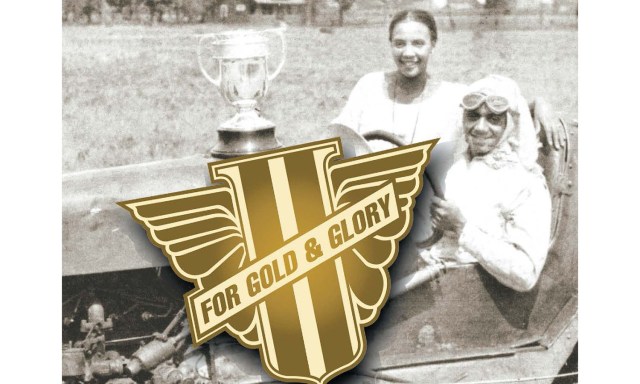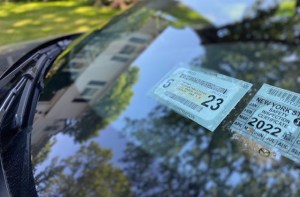The Indianapolis Speedway is the mecca of professional race car driving. But when Charlie Wiggins and other African-American drivers were barred from competing at the vaunted raceway, they took matters into their own hands.
Wiggins was born in Evansville, Ind., in 1897. He spent much of his childhood shining shoes outside an automobile repair shop. He eventually convinced the owner to take him on as an apprentice. Wiggins quickly became an expert mechanic. In 1922, he moved to Indianapolis, opened his own shop and began building a race car out of junkyard parts. Dubbed “the Wiggins Special,” it was his dream to drive the car in racing’s greatest event: the Indianapolis 500. Yet Wiggins was denied entry based solely on the color of his skin.
Undeterred, Wiggins and several other African-American drivers formed their own racing league, the Colored Speedway Association, which held competitions across the Midwest. Wiggins was outstanding in the new league. His exceptional driving ability coupled with the engineering knowledge to build top-notch cars propelled him to many victories and earned him the nickname “the Negro Speed King.”
The highlight of the Colored Speedway Association circuit was the annual Gold and Glory Sweepstakes, a 100-mile race on a 1-mile dirt track at the Indiana State Fairgrounds. Wiggins didn’t compete in the first event in 1924, which, according to the Historic Vehicle Association, drew a crowd of 12,000 and was the largest sporting event held for African Americans up to that point. However, over the next decade, Wiggins would win three sweepstakes championships.
Wiggins gained prominence across the racing world – and across racial lines. In 1934, well-known Indycar pilot Bill Cummings hired Wiggins to tune his car for the race. According to Road & Truck, Wiggins posed as a janitor in order to surreptitiously bypass Jim Crow laws. It worked and thanks to Wiggins’ skills, Cummings won the Indianapolis 500 and set a track record.
Two years later, Wiggins suffered a horrific accident in the Gold and Glory Sweepstakes, losing his right leg in a 13-car wreck. Afterward, he made himself a wooden leg and spent the next four decades building and repairing cars, and training mechanics. One of his proteges, Sumner “Red” Oliver, became the first official African-American mechanic in Indy 500 history as a member of the 1973 Patrick Racing Team. Unfortunately, Wiggins passed away in 1979, 12 years before Willy T. Ribbs became the first black driver to qualify for the Indy 500.
For more information on the Colored Speedway Association, pick up “For Gold & Glory” by Todd Gould, the definitive book on the African-American racing car circuit.
3 Thoughts on “Charlie Wiggins and the Gold and Glory Sweepstakes”
Leave A Comment
Comments are subject to moderation and may or may not be published at the editor’s discretion. Only comments that are relevant to the article and add value to the Your AAA community will be considered. Comments may be edited for clarity and length.












This is absolutely great Black History, I am in my 60’s and I was never taught anything in school about the C. R. Patterson, Charlie Wiggins, Sumner”Red” Oliver, or Willy T. Ribbs! This is AWESOME! Just by reading this, I feel empowered and Proud to be Black, because I have always felt that our people are innovative, smart, and industrious, my Grandfather was Black and he built his own shrimp boat and he was able to take care of his family by going fishing during the “Great Depression”, while other Black people died because they were looking for work and depended on God only knows, but sometimes you just have to figure out a way to keep yourself alive by doing something for yourself, my Grandfather was self-employed! Fishing for yourself and back then you didn’t need a fishing license, all you needed was a small boat, fishing nets, fishing tackle, and bait. He was fishing way after the Depression, he also was a Carpenter and Homebuilder. He had one more skill, he kept our front and back yard looking like a ShowPlace, everything he planted would grow, and then we had Turkeys and Chickens in the back yard, my Grandmother never had to buy a chicken or a Turkey, there were in the backyard, we had pecans, orange trees that my Grandfather planted! The millennial generation of young Black men, on the other hand, it is sad and very unfortunate, they know nothing of agriculture, fishing, raising chickens & turkeys, landscaping, or homebuilding! I am a baby-boomer and I am glad that I am because I got in on the good stuff. I feel very Blessed.
Imagine what Charlie Wiggins might have accomplished if he had the wind to his back instead of Jim Crow working against him….
Hi Dan,
Thanks so much for reading! The more we looked at Wiggins’ story, the more compelling it became and it’s unfortunate that he’s not celebrated more today. We hope to do more profiles like this in the future, such as our recent profiles celebrating C.R. Patterson and Sons, and Wendell Scott. Thanks again.
Jerry Ascierto